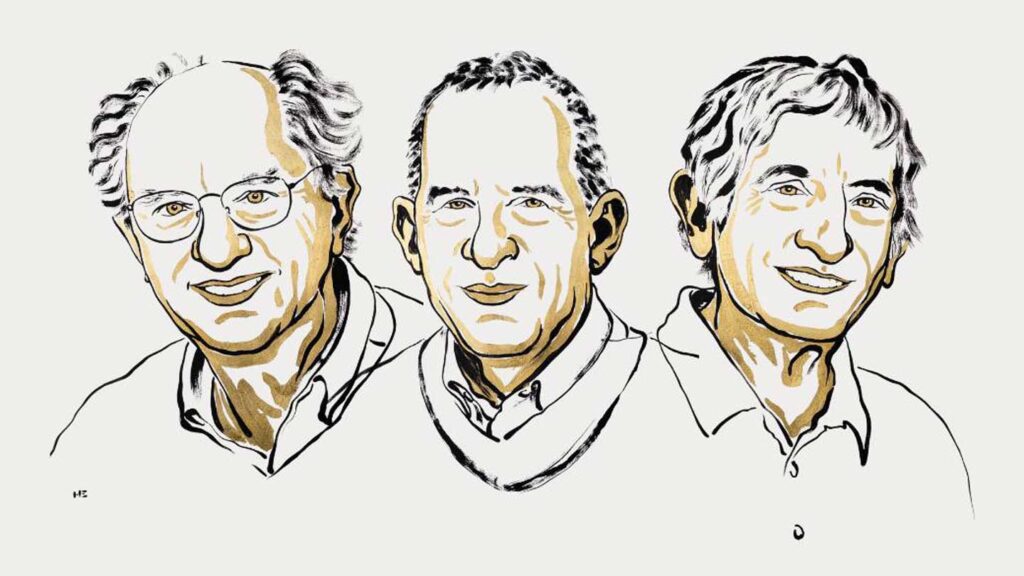atom: The basic unit of a chemical element. Atoms are made up of a dense nucleus that contains positively charged protons and uncharged neutrons. The nucleus is orbited by a cloud of negatively charged electrons.
behavior: The way something, often a person or other organism, acts towards others, or conducts itself.
circuit: A network that transmits electrical signals. In the body, nerve cells create circuits that relay electrical signals to the brain. In electronics, wires typically route those signals to activate some mechanical, computational or other function.
computer chip: (also integrated circuit) The computer component that processes and stores information.
electron: A negatively charged particle, usually found orbiting the outer regions of an atom; also, the carrier of electricity within solids.
field: An area of study, as in: Her field of research is biology. Also a term to describe a real-world environment in which some research is conducted, such as at sea, in a forest, on a mountaintop or on a city street. It is the opposite of an artificial setting, such as a research laboratory.
Josephson junction: A type of fast-switching electronic device. It has two layers of superconducting metal sandwiched above and below a thin insulator. It’s known as a quantum device as a circuit can switch between a state in which there is — and isn’t — a voltage crossing the boundary (or junction) between its superconducting and insulating materials.
mechanics: The study of how things move.
Nobel prize: A prestigious award named after Alfred Nobel. Best known as the inventor of dynamite, Nobel was a wealthy man when he died on December 10, 1896. In his will, Nobel left much of his fortune to create prizes to those who have done their best for humanity in the fields of physics, chemistry, physiology or medicine, literature and peace. Winners receive a medal and large cash award.
particle: A minute amount of something.
physics: The scientific study of the nature and properties of matter and energy. Classical physics is an explanation of the nature and properties of matter and energy that relies on descriptions such as Newton’s laws of motion. Quantum physics, a field of study that emerged later, is a more accurate way of explaining the motions and behavior of matter. A scientist who works in such areas is known as a physicist.
proof: (in math) The showing, step-by-step, that a given statement is true.
quantum: (pl. quanta) A term that refers to the smallest amount of anything, especially of energy or subatomic mass.
quantum computing: A special way to manipulate and store information based on the properties of very small stuff, such as individual atoms.
quantum mechanics: A branch of physics dealing with the behavior of matter on the scale of atoms or subatomic particles.
quantum theory: A way to describe the operation of matter and energy at the level of atoms. It is based on an interpretation that at this scale, energy and matter can be thought to behave as both particles and waves. The idea is that on this very tiny scale, matter and energy are made up of what scientists refer to as quanta — miniscule amounts of electromagnetic energy.
qubit: Short for quantum bit. It’s the analog of a bit — a zero or one — in classical computing. Classical computers encode data as bits, where each of these is either a zero or one. In quantum computing, data instead are encoded as qubits, where the two basic states are usually written as ∣0⟩ and ∣1⟩. A qubit can be in state ∣0⟩, ∣1⟩unlike a classical bit, a qubit also can be in a so-called linear combination of both states. The name of this phenomenon is superposition.
semiconductor: A material that sometimes conducts electricity. Semiconductors are important parts of computer chips and certain electronic technologies, such as light-emitting diodes.
theory: (in science) A description of some aspect of the natural world based on extensive observations, tests and reason. A theory can also be a way of organizing a broad body of knowledge that applies in a broad range of circumstances to explain what will happen. Unlike the common definition of theory, a theory in science is not just a hunch. Ideas or conclusions that are based on a theory — and not yet on firm data or observations — are referred to as theoretical. Scientists who use mathematics and/or existing data to project what might happen in new situations are known as theorists.
voltage: A force associated with an electric current that is measured in units known as volts. Power companies use high-voltage to move electric power over long distances.

